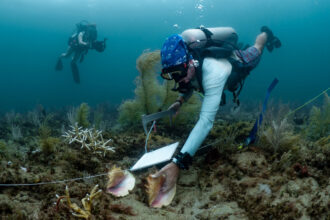CHARLOTTE, North Carolina—With the federal government’s withdrawal from the Paris Agreement, state and local governments in North Carolina have set their own ambitious goals for addressing climate change.

Now, they’re puzzling over how to carry out the big changes needed to reach those goals—such as switching to electric vehicles and shifting to more renewable energy.
Gov. Roy Cooper and 21 cities and counties in North Carolina—including Charlotte and Raleigh—have set clean energy goals.
At least for now, however, North Carolina is mostly gathering data and holding climate discussions, WFAE found as part of a regional collaboration with InsideClimate News called “Caught Off Guard: Southeast Struggles with Climate Change.”
This story was published as part of a collaborative project organized by InsideClimate News involving nine newsrooms across seven states. The project was led by Louisville, Ky.-based James Bruggers of InsideClimate News, who leads the Southeast regional hub of ICN’s Environmental Reporting Network.
About This Story
Perhaps you noticed: This story, like all the news we publish, is free to read. That’s because Inside Climate News is a 501c3 nonprofit organization. We do not charge a subscription fee, lock our news behind a paywall, or clutter our website with ads. We make our news on climate and the environment freely available to you and anyone who wants it.
That’s not all. We also share our news for free with scores of other media organizations around the country. Many of them can’t afford to do environmental journalism of their own. We’ve built bureaus from coast to coast to report local stories, collaborate with local newsrooms and co-publish articles so that this vital work is shared as widely as possible.
Two of us launched ICN in 2007. Six years later we earned a Pulitzer Prize for National Reporting, and now we run the oldest and largest dedicated climate newsroom in the nation. We tell the story in all its complexity. We hold polluters accountable. We expose environmental injustice. We debunk misinformation. We scrutinize solutions and inspire action.
Donations from readers like you fund every aspect of what we do. If you don’t already, will you support our ongoing work, our reporting on the biggest crisis facing our planet, and help us reach even more readers in more places?
Please take a moment to make a tax-deductible donation. Every one of them makes a difference.
Thank you,











